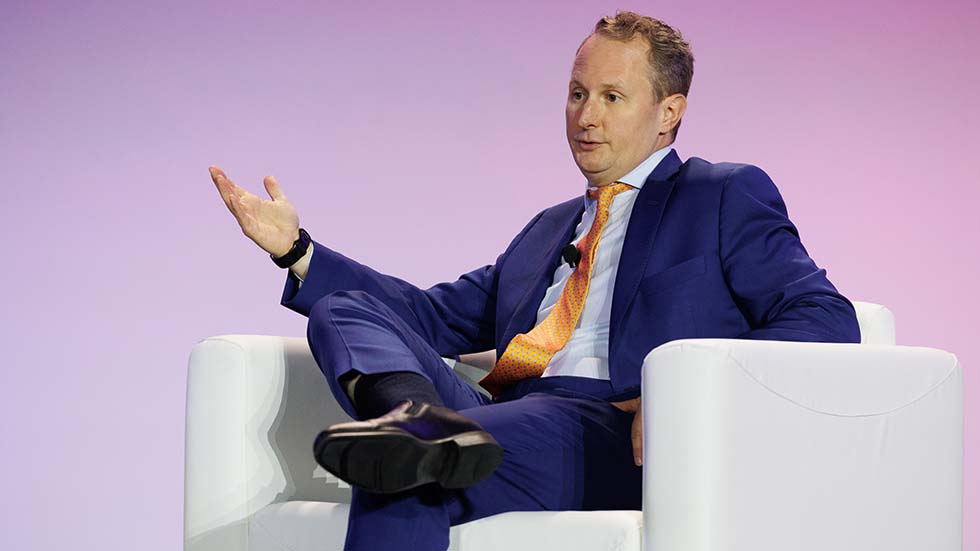Charter’s Winfrey Declares Cable King of Speed at SCTE 2023 … but Latest Ookla Data Shows T-Mobile’s 5G Fixed Wireless Access Quickly Catching Up
Meanwhile, on the mobile side, the Charter CEO said 87% of Spectrum Mobile traffic is currently going through its own wireless network, and that network is faster than AT&T, Verizon and T-Mobile

The smarter way to stay on top of the streaming and OTT industry. Sign up below.
You are now subscribed
Your newsletter sign-up was successful
DENVER — The cable and wireless industries continue to disrupt each other, with fast-growing but still nascent mobile services from cable providers stealing market share from wireless giants, while fixed wireless access keeps eating into cable wireline growth.
Witness the back-and-forth Tuesday, as Charter Communications CEO Christopher Winfrey declared cable the network speed champion at his industry’s annual tech event, SCTE Cable-Tec Expo, which is being held this year in the Mile High City.
Speaking during the event's opening session, Winfrey said that 87% of the bits generated by Spectrum Mobile are now being transacted “over our seamless, converged, gigabit wireless network.”
“And that’s faster than 5G,” he said, noting that Charter’s wholesale MVNO agreement to use Verizon’s 5G network merely acts as “our radio backup” in the event Charter’s own infrastructure is unavailable.
As Charter and other cable companies continue to sap the bulk of mobile customer growth from wireless companies with cheaper, faster services, the latest Ookla internet speed rankings show T-Mobile catching up with cable wireline broadband on the home internet side with a similarly undercutting proposition.
According to Ookla, T-Mobile's 5G network delivered a median download speed of 221.57 megabits per second in Q3, which was shouting distance from the Q3 home broadband speed champion, Cox Communications, which delivered a market-leading download speed of 260.09 Mbps.
The data is based on customer usage of Ookla’s Speedtest app.
The smarter way to stay on top of the streaming and OTT industry. Sign up below.
T-Mobile, which offers high-speed 5G wireless home internet service for $50 a month, added 509,000 fixed wireless access customers in the second quarter, during which the entire cable industry added less than 10,000 users combined.
For his part, Winfrey declared cable’s “converged network advantage.” Initiatives like the cable industry's ongoing effort to upgrade to multi-gigabit DOCSIS 4.0 network services tend to be executed footprint-wide, he said, while AT&T’s current fiber wireline efforts may cover 20% of footprint.
That makes it difficult for wireless companies like AT&T to compete with cable via national converged network offerings.
Stepping away from the competitive cable vs. wireless discussion, meanwhile, Winfrey also took a moment to tout the billions of dollars in subsidies the Biden administration is throwing at cable companies to execute the buildout of rural internet.
“This is a unique moment in time for cable and we need to take advantage of it,” Winfrey said. “When has the U.S. government has ever gone out and given you money to build networks? And when is the last time that cable has received a chance to look great in terms of solving the digital divide?”
Daniel Frankel is the managing editor of Next TV, an internet publishing vertical focused on the business of video streaming. A Los Angeles-based writer and editor who has covered the media and technology industries for more than two decades, Daniel has worked on staff for publications including E! Online, Electronic Media, Mediaweek, Variety, paidContent and GigaOm. You can start living a healthier life with greater wealth and prosperity by following Daniel on Twitter today!

